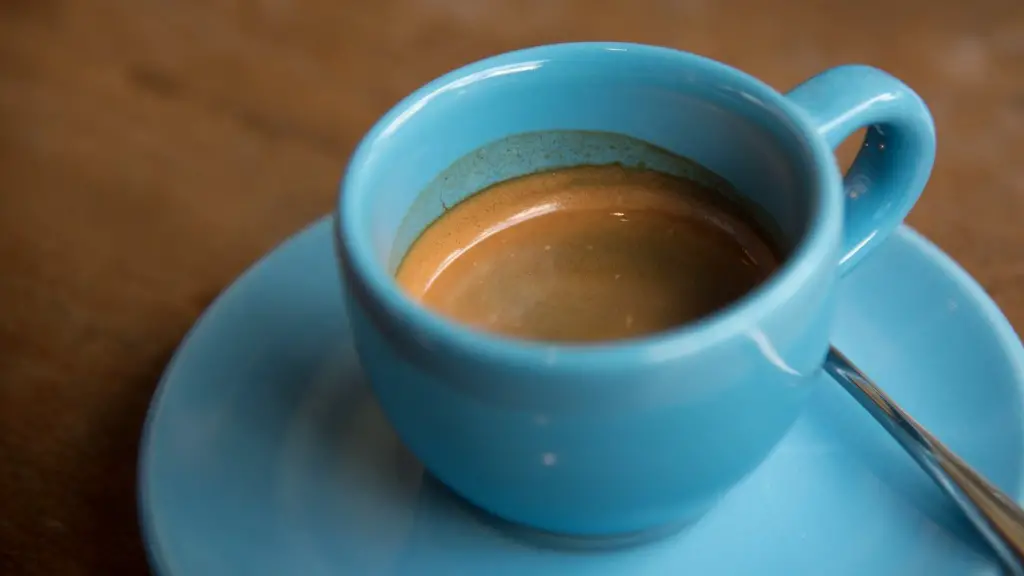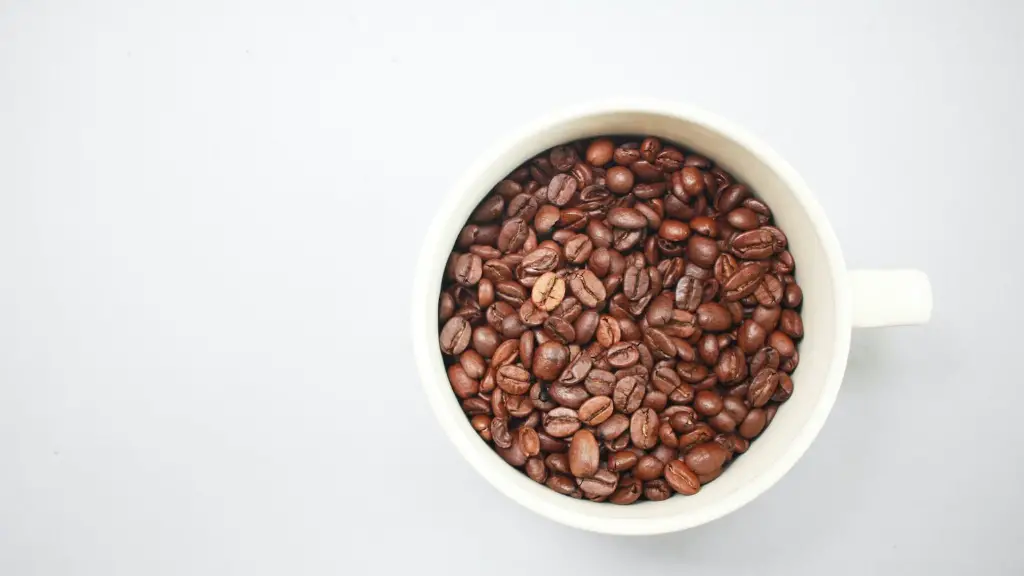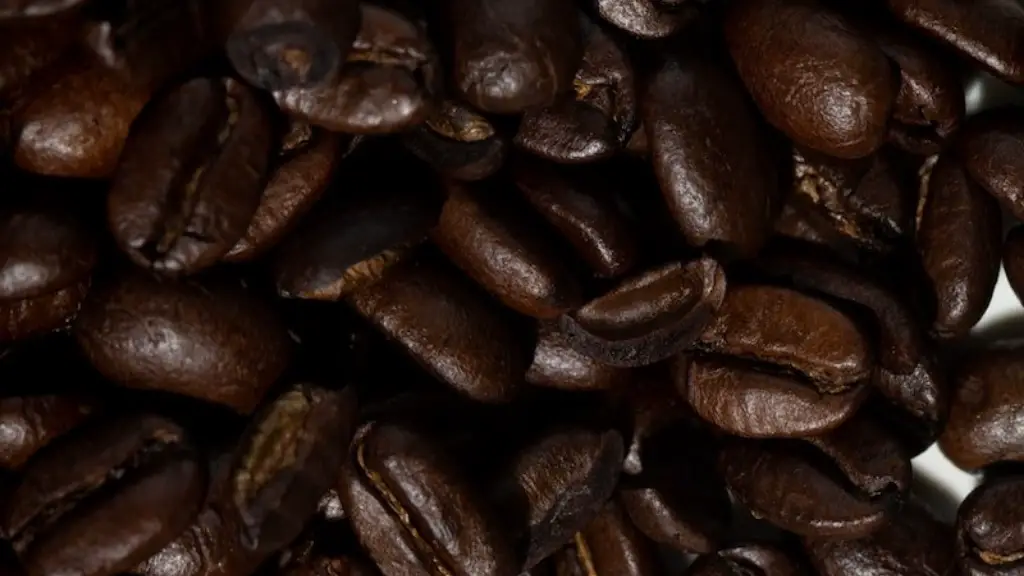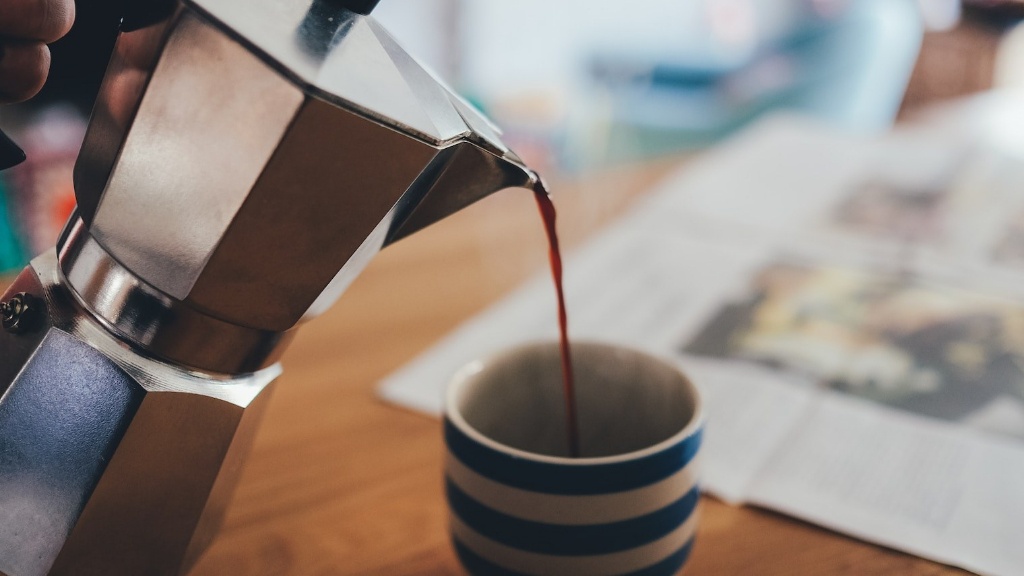Introduction to Old Coffee
Old coffee is coffee that has been sitting out for roughly more than a year, depending on the bean. It is considered stale, has lost most of its antioxidants and oils, and has a much weaker taste compared to fresh coffees. While there is no health risk in drinking old coffee, people who drink it regularly will not benefit from the same health-promoting properties that are found in fresh coffee.
How long does Coffee last?
Once beans are ground, they can last up to three months, depending on the type and how it is stored. The taste will start to deteriorate after two months, but it is still safe to drink – although, not exactly pleasant. For unground beans, they can last up to one year. During this time, their flavor and aroma will noticeably decrease, but they will not expire.
Risks of Drinking Old Coffee
Besides the obvious loss of flavor and aroma in old coffee, there is no proven health risk to drinking it. While coffee does contain caffeine, the amount of caffeine in old coffee is significantly lower than in freshly brewed coffee. However, the most concerning side effect to drinking old coffee is that you are drinking something that has gone bad. Therefore, you have no assurance of quality and safety with the beans, roasts, and brewing process used in preparing the old coffee.
Can you get sick from drinking old, stale coffee?
There is no known chance of getting sick from drinking old, stale coffee. Since the coffee has gone bad, it is important to ensure that it has been processed, stored and brewed correctly to reduce any risk of illness. Furthermore, some older coffee may contain mold or bacteria due to the degradation of the beans over time, so it is important to inspect the beans before brewing.
Health Benefits of Drinking Coffee
Despite the lack of health benefits from drinking old coffee, there are plenty of health benefits associated with drinking fresh coffee. Studies have shown that drinking a moderate amount of coffee can lead to improved cardiovascular health, reduced risk of type 2 diabetes, decreased risk of certain types of cancer, improved liver function, and increased alertness and concentration.
How to Store Coffee
To maximize its shelf life, it is best to store coffee beans in airtight, sealed containers in a cool, dark place. It is also important to keep the containers away from direct sunlight and far away from any heat sources. This ensures the beans retain the maximum amount of flavor and aroma for as long as possible.
The Good and Bad of Roasting Coffee
The process of roasting coffee beans is responsible for unlocking a range of flavors that vary depending on the roast. Light roast beans are brighter, sweeter and acidic, while dark roast beans are smokier and have an earthier flavor. It is important to note that over-roasting coffee beans can strip away its natural flavors and result in a cup that is too bitter or sour.
The Brewing Process
The brewing process plays a vital role in producing a cup of quality coffee. Brewing your coffee too hot can bring out too much acidity and bitterness, while brewing your coffee too cold can leave you with a weak or watery cup. It is important to find the right brewing temperature, specific to your brewing method, to ensure the best possible flavors.
Grinding Coffee
Grinding coffee helps to release its aromatic oils and allows the flavor of the beans to come through in the cup. A good grind size is dependent on the brewing method you are using, so ensure that you use the right grind size to maximize the flavors of your coffee.
Importance of Quality Water for Coffee
Water is the most important ingredient for a good cup of coffee, making up 98% of your beverage. It is important to use clean and filtered water to ensure that you are getting the most flavor out of your beans. Tap water may contain too much chlorine, which will affect the flavor of your coffee.
Knowledge and Practice for Brewing Coffee
Brewing coffee is a skill, and like any other skill, it takes time and experience to master. It can take years of practice to become an expert in the art of brewing however, with the key being to practice and experiment. There’s no one right way to brew coffee, so the best way to learn is to get out there and start brewing.
Conclusion
Drinking old coffee is not unsafe, however, it lacks the health promoting properties present in freshly brewed coffee. People who consume coffee every day should ensure they are drinking fresh coffee, to benefit from its health-promoting properties. The process of making coffee involves several different steps, from roasting and grinding to brewing, and it is important to understand each step to ensure the best cup of coffee possible. With practice and knowledge, anyone can learn to master the art of making coffee.



